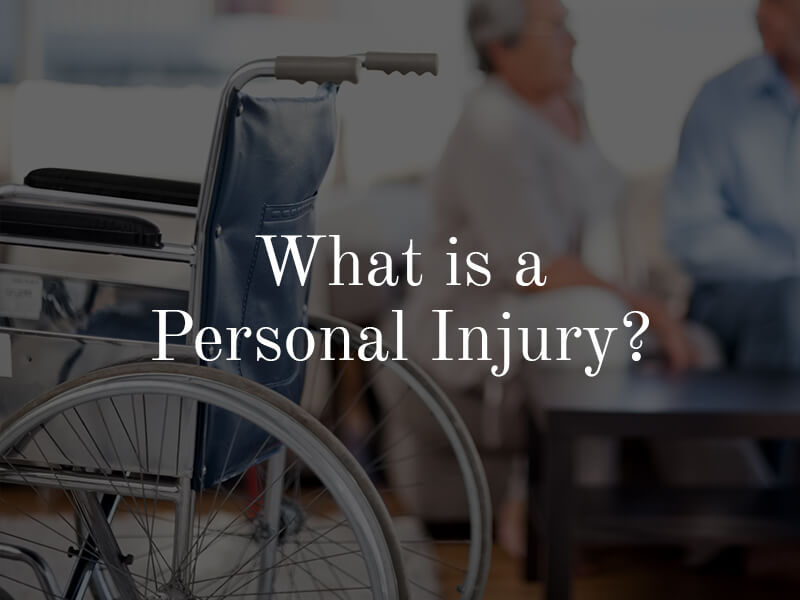What is Considered “Personal Injury” in Illinois?
Personal Injury - January 14, 2020
If you or somebody you know has been injured, there are a few different terms that you may hear. One term is “personal injury,” and the other is “bodily injury.” Understanding the difference between these two phrases is important.
The term “personal injury” is used in civil law to define claims that victims of other people’s negligence can file to receive compensation. This term can be used in reference to a bodily injury. The defendant in a Chicago personal injury claim is the person whose actions caused harm to another party. The plaintiff in these claims is the person who has been injured.
How to determine whether you have a personal injury claim?
Not all injuries a person suffers are “personal injuries” as far as civil lawsuits are concerned. A bodily injury can occur to someone and it not be the fault of another party. Sometimes accidents occur, people are harmed, and there is nobody to blame. Other times, a person may do something that causes their own injury, leaving them unable to pursue compensation from another party.
Four Elements of an Injury Claim
The following four elements must be proven in order for a personal injury case to be successful.
- Duty to care.
A defendant must have had a duty to exercise reasonable care to the plaintiff. For example, if a personal injury case involves a car accident, a driver likely had a duty to operate their vehicle with care so as to avoid accidents with others. In slip and fall case, business owners in property owners generally have a duty to keep their premises safe for anyone allowed to be there.
- Breach of duty.
The second element for proving negligence is showing that there was a breach in a person’s duty to care. For example, a driver who fails to stop at a stop sign has breached their duty of care to others around them. A property owner breaches their duty of care if they fail to clean up spills on the floor in a timely manner. Even if a defendant did not intend to cause harm to the plaintiff, they could still be held liable if their negligence causes an injury.
- Causation.
The third element in these cases is showing that the breach of a person’s duty to care contributed to the injury the plaintiff sustained. Following the example above, if a person runs a stop sign but does not cause an accident leading to injuries, there is no causation in the case. However, if they run a stop sign, strike another vehicle, and cause injuries, causation would be present.
- Damages.
Finally, the plaintiff must have suffered damages due to their injuries for a personal injury claim to be valid. Some of the common types of damages that may warrant a personal injury claim include medical costs, lost income and benefits, pain and suffering, disability, and more.
If you are unsure whether or not you have a personal injury claim, please seek assistance from a qualified personal injury attorney. Most individuals do not have the experience or resources to understand the legalities behind these cases. An attorney will be able to guide you onto the best path forward for your case. A skilled Illinois personal injury attorney will work to obtain maximum compensation through a settlement or jury verdict.
Read More:



